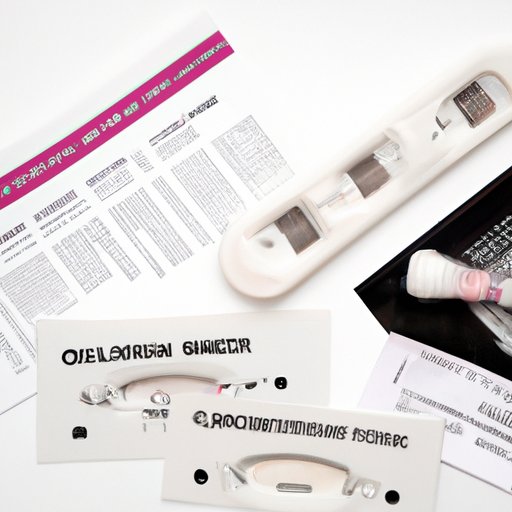
Introduction
One of the most exciting moments of pregnancy is finding out the gender of the baby. Parents-to-be are filled with curiosity and excitement as they eagerly anticipate the revelation. The good news is that with advancements in technology and a range of traditional methods; determining the gender of your baby has become more accessible than ever before. Let’s explore the science behind it.
5 Telltale Signs That Indicate Your Baby’s Gender
While they may not be 100% accurate, there are several physical traits that can indicate a baby’s gender. Careful observation of your baby’s heartbeat, cravings, and the shape of the bump are all examples of gender prediction methods. However, experts advise caution while relying too heavily on these signs as they can be vague and vary greatly among individuals.
Ultrasound VS Blood Test: Which Method Reveals Your Baby’s Gender Sooner?
Ultrasound and blood testing are the two most prevalent methods to find out your baby’s gender. Ultrasound takes place around the 18-20 week mark, and a technician uses a wand to scan the mother’s abdomen to detect the baby’s characteristics. Whereas a blood test, also known as Non-invasive Prenatal Testing (NIPT), is conducted around 9-10 weeks and is used to detect the presence of fetal sex chromosomes. While it’s tempting to want to take the test as early as possible, it’s important to know both methods have advantages and disadvantages. The choice ultimately depends on personal preferences, medical history, and the stage of pregnancy.
10 Old Wives’ Tales That Predict Your Baby’s Gender – Are They True?
Old wives tales are often passed down for generations to predict a baby’s gender without scientific backing. Examples include analyzing the mother’s morning sickness or how she carries the baby. While these tales might be harmless and fun, they have no scientific basis. However, they might be right simply because the chances of a correct guess are 50/50.
Genetic Testing: How a Simple Blood Sample Can Tell You Your Baby’s Gender
Genetic testing is the most reliable and accurate way to determine your baby’s gender, with almost 100% accuracy. It analyzes the fetal DNA present in the mother’s blood and determines whether the baby has XX (female) or XY (male) chromosomes. The test is usually recommended for high-risk pregnancies and is available as early as eight weeks of pregnancy. It’s important to note that genetic testing is expensive, and not all insurance policies cover it.
4 Proven Methods to Find out Your Baby’s Gender as Early as Possible
Parents who want to find out the gender of their baby as early as possible may opt for specialized tests such as pre-implantation genetic testing or chorionic villus sampling. While these tests provide early results, they come with risks such as miscarriage or harm to the baby. Experts recommend that parents explore non-invasive methods, such as ultrasound or NIPT tests, depending on their medical histories and personal preferences.
When to Schedule Your Gender Reveal Party: A Guide to Determining the Earliest Time to Announce Your Baby’s Gender
Gender reveal parties are a fun way for expecting parents to announce their baby’s gender to family and friends. However, it’s essential to factor in ethics and practical considerations such as cultural sensitivity and the timing of the announcement. While most baby gender reveals happen after the 20th week of pregnancy, some parents might choose to reveal the gender only after the baby’s arrival. It’s crucial to plan these parties with inclusivity and sensitivity in mind.
Exploring Gender Prediction Kits: Are They Accurate, and Which Ones Work Best?
Gender prediction kits are non-invasive, affordable, and can be a fun way to find out the sex of your baby. They use the mother’s urine to predict the baby’s gender, no blood samples or ultrasounds required. However, the accuracy of gender prediction kits ranges from 50-70%, making it slightly more accurate than an old wives’ tale. Before purchasing a gender prediction kit, it is crucial to ensure you buy it from a reputable company and read reviews from other parents.
Conclusion
Whether you choose a scientific or traditional method to determine your baby’s gender, it’s crucial to make informed decisions that prioritize the safety and wellbeing of both the mother and baby. Remember, the gender of your baby does not define them, and the journey of parenthood is a beautiful and unique experience. Enjoy the journey regardless of your baby’s gender.




